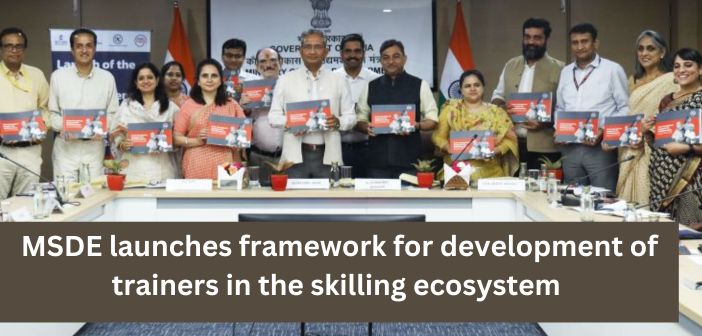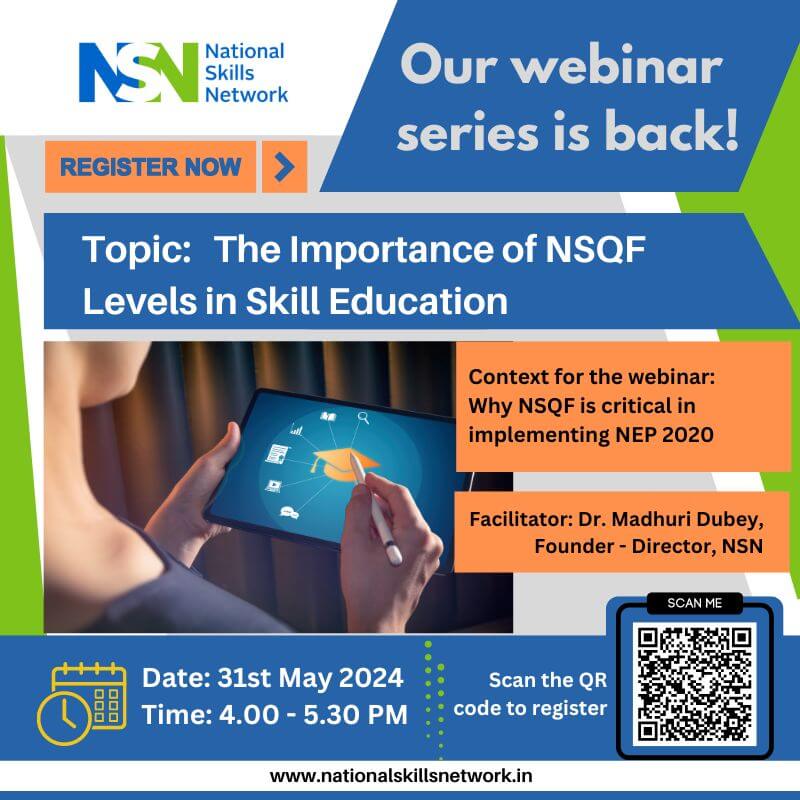Future Right Skills Network (FRSN) has partnered MSDE to develop the “Trainer Development Strategy for the Skilling Ecosystem.” This strategy provides a framework and guidelines for shaping 21st-century educators. It advises trainers to incorporate digital blended content into their classroom teaching, utilizing digital tools and resources.
As ‘Viksit Bharat 2047’ envisions a fully developed nation by India’s 100th year of independence, the Ministry of Skill Development and Entrepreneurship (MSDE) is committed to cultivating a dynamic workforce for an ever-evolving economy. To achieve this goal, the Ministry has outlined a comprehensive plan to equip trainers from both short-term and long-term skilling ecosystems with the necessary skills and technology, enabling learners to thrive in the future market.
The drafting of the trainer development strategy has been facilitated by Quest Alliance and supported by FRSN, a collaboration between Accenture, Cisco, J.P. Morgan, and SAP.
The initiative aims to enhance the quality and effectiveness of trainers across sectors for long-term skilling. Key points of the strategy include:
- Addressing Gaps: Targeting gaps in staffing and training capacity, as well as the shortage of qualified trainers in the Technical and Vocational Education and Training (TVET) sector.
- Improving Quality and Effectiveness: Enhancing the quality of skill development programs by ensuring a steady supply of qualified trainers.
- Reducing Attrition: Tackling issues leading to trainer attrition, such as irregular employment, limited career advancement opportunities, and low pay.
- Enhancing Efficiency: Proposing strategies to improve the efficiency of existing trainers through recognition, performance evaluation, motivation, and up-skilling.
Shri Atul Kumar Tiwari, Secretary, MSDE; emphasized the importance of adapting the ITI system to meet the demands of the new-age economy and the latest industrial technologies. He underscored that career progression, motivation, and keeping ITI trainers updated with recent advancements are crucial for fostering a dynamic skilling environment at ITIs. He also highlighted the growing demand for high-quality trainers for short-term, government-sponsored skill programs, which are expanding in scope and increasingly focusing on future-oriented job roles.

Shri Atul Kumar Tiwari also emphasized that the ‘Trainer Development Strategy for the Skilling Ecosystem – Framework and Guidelines’ showcases the collaborative efforts of the Government, Industry, and Academia.
This strategy aims to strengthen the skilling ecosystem with a comprehensive approach to trainer development. As the Ministry marks its tenth year, it is important to focus on future development areas while celebrating past achievements, noting that these efforts will further fortify the ecosystem.
The recommendations will be validated in various Indian states to gather feedback from trainers, learners, and other stakeholders in the skilling ecosystem before large-scale implementation.
Also read: IndiaSkills 2024 concluded with 58 winners to represent India in WorldSkills
Shri Aakash Sethi, CEO of Quest Alliance, stated that integrating digital content and resources into classroom learning equips India’s workforce with the skills needed to thrive in the 21st-century economy. He added that this initiative will pave the way for a more dynamic and efficient skilling ecosystem in India. Sethi also emphasized that trainers must stay ahead of industry trends to effectively prepare the workforce for industry demands.














